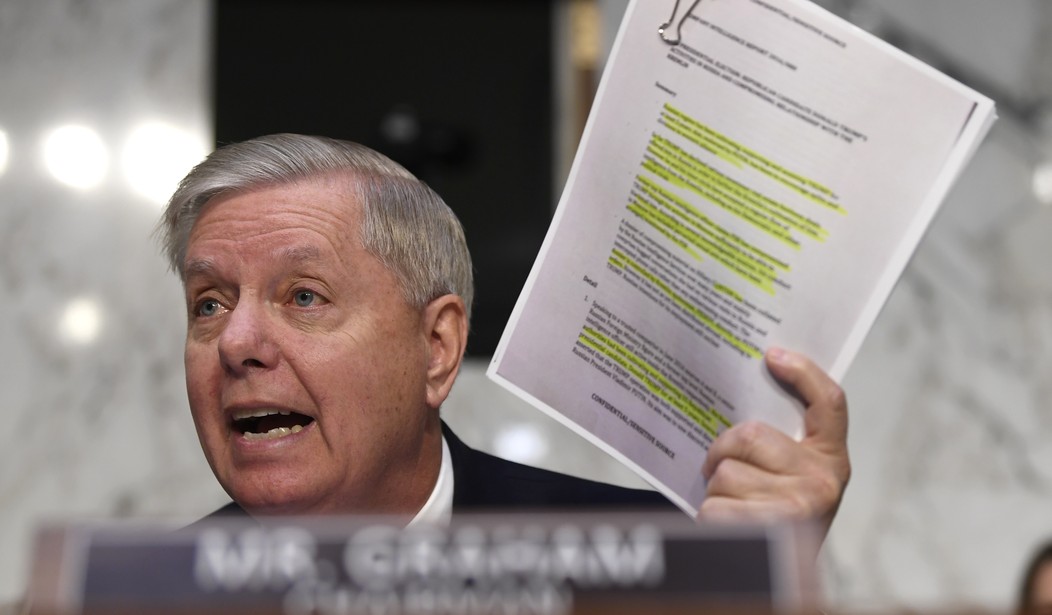“Those who would give up essential Liberty, to purchase a little temporary Safety, deserve neither Liberty nor Safety.” This is a line regularly quoted by privacy advocates seeking to sunset the Foreign Intelligence Surveillance Act’s (“FISA”) secret wiretap provisions. In the aftermath of Justice Department Inspector General Michael Horowitz’s report, these same advocates make a strong case that FISA powers have been abused. But with a rejuvenating terror threat from the Middle East and aggressive efforts by our global rivals, blinding the intelligence community makes little sense.
There is no need to review the litany of transgressions outlined in the Horowitz Report. The bottom line is that after reviewing every FISA warrant requested by the FBI to spy on American citizens, the Justice Department’s Inspector General found that every single one was riddled with errors. Every. Single. One.
Indeed, after the chief judge of the Foreign Intelligence Surveillance Court (“FISC”) reviewed allegations of abuse by the FBI in January, he barred many of the agents in the National Security Section of the Bureau from working on future surveillance applications. While both the Inspector General and the FISA court have taken steps to address misconduct, Congress continues to have a role to play regarding the way the FISC operates. We believe five key reforms would help re-establish public confidence in the FISC, as well as in the FBI itself.
Appointments to the Court. FISA Court members should be nominated by the President and confirmed by the Senate, just like an elevation of a district court judge to a circuit court. Right now, the Chief Justice appoints all FISA judges. Many believe this is Constitutionally suspect. But more importantly, if one person is empowered unilaterally to appoint every FISC judge, the danger of systemic bias becomes more pronounced. Providing the Senate with the confirmation power would permit political actors – who are accountable to the voters – to question judges on the record. Given the power each would hold, the public has a right to know a nominee’s views on privacy, the appropriate balance of power between government and the individual, and the need to hold the government accountable when it errs.
Recommended
Warrant Requests and Evidentiary Submissions. If an agency official is seeking wiretap authority from the FISC that is for – or could lead to – a criminal prosecution, he/she should be required to submit the request under oath. Those who fail to follow the “heightened duty of candor with the Court,” as required by the FISC, should be held fully accountable. The Justice Department must hold its own employees to the same standards it does to average Americans when they are accused of perjury, making false statements, or obstructing justice.
Record of Proceedings. According to Judge Collyer, “the [FISC] court doesn’t maintain a “systematic record” of proceedings.” As such, it is difficult to reconstruct what happened when reviewing past Court activities and submissions from the intelligence community. This must change in the aftermath of the Horowitz IG report so that a paper trail can be reviewed to ensure the system is not being gamed by the government.
Ombudsman/Privacy Advocate. The secret nature of the court makes it impossible to have a truly adversarial process where prosecutors and defense attorneys argue their respective cases before a judge. But there ought to be an office charged with zealously putting the government to its proofs to justify the intrusive nature of a FISA warrant. A privacy advocate, akin to a “public defender,” should be appointed who is solely accountable to the Chief Judge of the FISC.
Limited Use of FISA Information by Law Enforcement. In 2003, the commission investigating 9/11 noted that a wall had precluded information sharing between law enforcement and the intelligence community. As a result, America’s national security structure lacked the ability to see the full threat matrix facing the county on September 10th, 2001.
Today, there is full information sharing between law enforcement and intelligence functions. But this creates a temptation for our police to rely on the vast powers of the intelligence apparatus to troll for evidence. No one wants to go back to the time when cops and spies are prohibited from working together or sharing information. But given the breadth of data generated by a FISA warrant, information gleaned from FISC-authorized wiretaps should not be permitted in ordinary criminal trials. Of course, it should be shared within the law enforcement and intelligence establishment and be used for national security, and in court for terrorism and treason cases. But for run-of-the-mill criminal activity, our police agencies should have to acquire evidence the old-fashioned way.
It is said that the first step to recovery is acknowledging the problem. Make no mistake, the Horowitz Report did just that. But as a result, the public’s belief in both the integrity of the FBI and the legitimacy of the Foreign Intelligence Surveillance Court is at a nadir. Unless the crisis in confidence is fully and transparently addressed, the reauthorization of the Foreign Intelligence Surveillance Act will be in doubt.
David Safavian is the General Counsel of the American Conservative Union. Arthur Rizer is a former Department of Justice trial attorney in the Criminal Division working on national security cases. He is currently the director of Criminal Justice & Civil Liberties programs at the R Street Institute and a national security adjunct law professor at Antonia Scalia Law, GMU.
























Join the conversation as a VIP Member